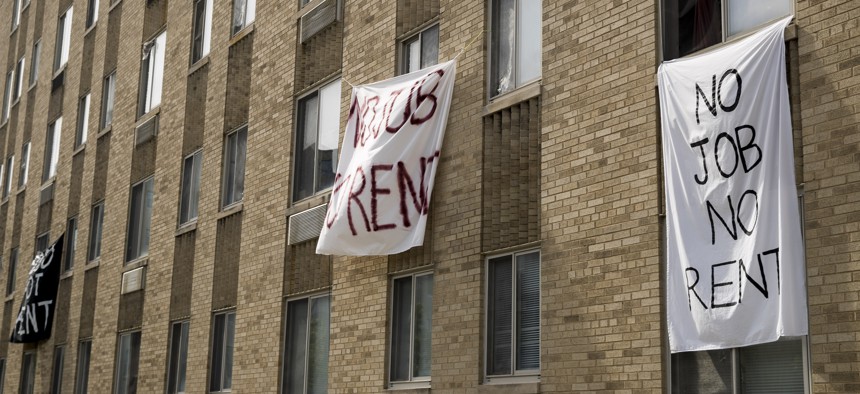Audit Warns State Could Lose Over $330M in Rental Aid

The way California defines whether or not emergency rental assistance has been “obligated” could put it at risk of forfeiting funds, a state watchdog says.
State and local governments administering emergency rental assistance programs may have to forfeit unspent funding if they do not get the money to renters by the end of the month.
While some programs have done better distributing the money than others, a recent audit of California rental assistance funds highlights a discrepancy between how the state and federal government classify the money as “obligated.” As a result of this issue, California could be at risk of losing $337 million in emergency rental aid, according to the report by California State Auditor Elaine Howle.
The U.S. Department of Treasury awarded jurisdictions in California $2.6 billion in emergency rental assistance in the first round of funding. Of that, California’s Department of Housing and Community Development is managing $1.8 billion.
Treasury has put awardees on notice that the department will move to recapture unspent rental assistance if jurisdictions have not “obligated” the money by Sept. 30. The money will be reallocated to other jurisdictions that have obligated at least 65% of their allocations.
Treasury did not provide a definition for what it considered “obligated” until June, at which point it defined the term as the payments to, or for, participating households that a grantee has agreed to pay, the audit states. California’s Department of Housing and Community Development has at times used that standard. But in other reports, the agency has used a different standard and calculated the obligated amount to include “its forecast of payments to eligible households to further demonstrate the ongoing need in California,” the audit states. Using that definition, the state reported to Treasury In June that it had obligated $1.6 billion, or 90% of its funds.
“By reporting its obligated funds in this way, HCD’s approach does not align with Treasury’s reporting guidance and risks overstating its obligated amounts to Treasury,” the audit report says.
The audit calculates that based on the definition used by Treasury, the state has actually obligated 81% of its total funding.
While the amount is far higher than some jurisdictions, the audit warns that the state may be at risk of losing out on as much as $337 million if it is not distributed to renters in the coming weeks.
“Given the narrow time frame set by the federal government, we wanted to impress upon you the need for continued attention in order to minimize the risk and the amount of funds the state could lose beginning September 30, 2021,” the report states.
In a written response to the audit, HCD Director Gustavo Velasquez disagreed with the findings and said the state is unlikely to lose the funding identified because the state has obligated more than 65% of the aid.
“HCD’s interpretation, which is informed by direct communications with Treasury officials, and upon advice from legal counsel, is that a recipient’s funds are recaptured only if the recipient falls below the 65% obligation threshold,” Velasquez wrote.
State and local governments have dispersed $7.7 billion in emergency rental assistance to 1.4 million households across the country, the Treasury Department said in its latest update.
The department has said it intends to release detailed guidance outlining how it will go about reallocating unspent money in the coming days.
Andrea Noble is a staff correspondent with Route Fifty.
NEXT STORY: Top Democrats Announce Deal on Raising Revenue for $3.5T Package





